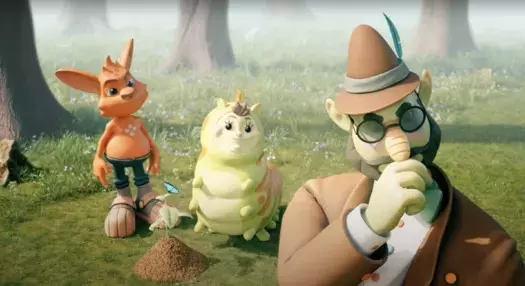
In an innovative approach to science education, a nonprofit organization has introduced a unique educational tool aimed at children. The Michael Fields Agricultural Institute crafted an animated rap song celebrating soil microbes to bridge the gap in K-12 science curricula. Nicole Tautgus, an agroecologist and research director at the institute, noted that the concept of soil science often remains unaddressed until higher education levels. Inspired by her own experiences and her toddler son's curiosity, she created this engaging content to connect the dots between soil health, plants, and food consumption.
An Animated Journey Through the World Beneath Our Feet
During a time when discussions on sustainable farming practices are gaining momentum, the Michael Fields Agricultural Institute launched "The Soil Microbe Song" in the vibrant autumn season. This initiative aims to introduce younger audiences to the fascinating world of soil microbes. Nicole Tautgus, who spearheaded the project, emphasized the importance of understanding these microscopic organisms that play a crucial role in nutrient retention and disease suppression in farm soils. Organic farming methods have been shown to enhance microbial activity significantly, making it essential to share such knowledge with future generations.
The animated characters in the song depict various roles of soil microbes in a fun and interactive manner, designed to captivate young minds. By connecting concepts like healthy eating and hands-on dirt exploration to the science behind them, the video fosters a holistic understanding of agriculture from soil to plate. The institute also plans to develop supplementary teaching materials to integrate this resource into classrooms statewide.
From a journalistic perspective, this effort highlights the potential of creative educational tools in addressing gaps within traditional school curriculums. It underscores the significance of introducing complex scientific topics in accessible ways, ensuring that even intricate subjects like soil microbiology can be made engaging for all ages. Such initiatives pave the way for a more informed society, capable of appreciating and contributing to sustainable agricultural practices.
